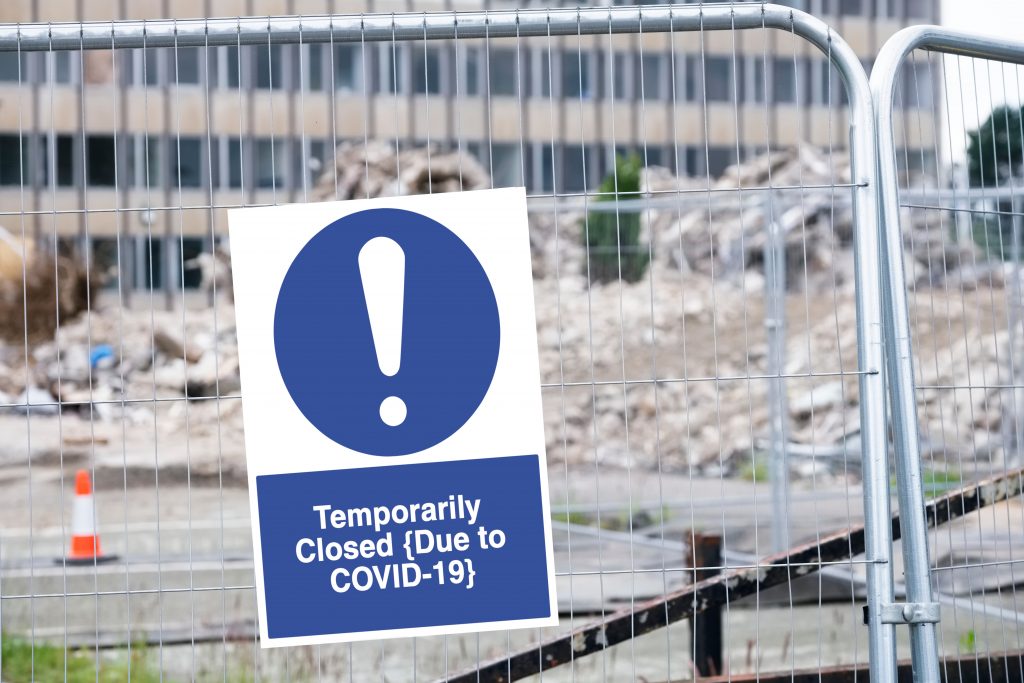
European steelmakers are still weighing the effects of the new coronavirus lockdowns that were put in place in most European countries. This week Germany and Italy joined Belgium, France and Spain in the list of European countries that have declared second lockdowns.
Restaurants, bars, cultural and leisure centers have been shut down to curb a second coronavirus wave, but factories have been kept open. Executives of steelmakers that have large production sites in different countries noted that so far the mills mostly affected are the one where virus levels are higher, as in France and Spain. However, “the disruptions are not close to March levels,” a Spanish source said.
“If we look at the restriction across most of the European countries, the steel sites and in general industries are still open. The problem is in the day-to-day work if a few workers test positive a line can stop. Most of the steel plants have put in place a safe environment in which people can work but workers have families and their lives outside the steel sites and they can become infected [and then] a line can stop suddenly, disrupting orders,” an executive from an Italian mill commented.
“We still have enough people at the plant, not a lot of shifts are full and that could have an effect on the shipment of material so a shorter workforce is bad – this will extend lead times, but we are better prepared. In February-March we didn’t know what was happening, what we could do. Everyone panicked a little bit. This is less the case now,” a source from a Belgium-based mill commented. “Most of the companies are seeing what very big financial [risks] you need to make to shut down production so everyone starts to be more creative than in the first days. in my view a second wave will have an effect on production but not as much as the first time.”
Overall, market sources are cautious about the coming weeks. They do not expect the huge supply chain disruptions from lockdowns and transportation blockages in transport across the EU countries as seen in March, but doubts about steel demand are starting to rise.
Steel order bookings are reported to be still relatively good but it’s not yet clear this will last. “We had two good months in September-October and were worried about the COVID evolution and the lockdown situation and they’ll have an impact on steel consumption for sure – its already a big question,” a Benelux service center source commented.
“We are fully open and working – we were working really at 100% and more. We are terribly busy but we’ll need to see what the next weeks will bring. This isn’t clear. Sales might go down slowly. It’s unpredictable but we’re ready to continue. We are still active so we’re ready to serve customers but if they close down then we’ll need to adapt to this. At this moment we’re ready to work at 100%.”
In the automotive sector, one of the key industries for steel, demand for new cars is expected to remain low at least until the macroeconomic picture and consumer disposable income situations improve, as the main car producers see auto sales falling this year, European steel federation Eurofer said in its latest outlook.
German luxury carmaker BMW warned on Nov. 4 that new pandemic restrictions would “severely” hit business in the months ahead. “The level of risk due to the negative impact of the pandemic is assessed as high,” it said. “If the corona pandemic takes an even more serious course and the global economy experiences a perceptible downturn, the risk exposure could be considerable, particularly on the demand side.”
As underlined by the World Steel Association in its recent outlook, the construction sector remained more resilient to the COVID-19 shock as many governments focused on implementing public projects. European long steel producers said that demand construction-oriented rebar and wire rod has been good, also considering the seasonal factor, but again it is not yet clear how long this positive momentum will last.
— Annalisa Villa, Amanda Flint





